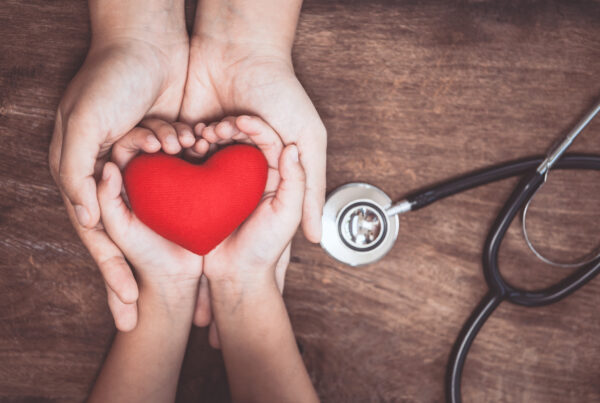”Question: I am aware of all the benefits that sleep offers for my day to day life. Should my sleep change if I am suffering with an injury?
Reading Time: 4 Minutes
MWi Hacks:
- So you’ve just sustained an injury and it’s preventing you from your regular day-to-day activities. Sleep is an excellent tool for helping injuries heal as fast as possible. Healthy sleep habits can get you back to your activities quicker, and lower your risk for another injury. First, let’s explore the science behind sleep and recovery.
MWi Summary:
- Your body heals and generates new tissue at the site of injury while you sleep.
- Stress can aggravate injuries. Getting more sleep will help lower stress levels.
- Sleep should be a top priority when recovering from an injury. Good sleep habits can also help prevent injuries.
How Does Sleep Help Heal Injuries?
The main role of sleep in your recovery is to ensure the growth of new, healthy tissues at the site of your injuries.
When entering sleep, the brain signals the release of large amounts of growth hormones. Hormones such as Human Growth Hormone (HGH) and testosterone are responsible for building new proteins to replace damaged ones in muscle, tendon, ligament, and bones. Hormone levels are highest during sleep and, as a result, the majority of repair occurs at night. A single night of sleep deprivation can lower testosterone levels by 24% and slow the repair process down by 18% (1). This effect is likely amplified when you have repeated days with insufficient sleep. Consistent, plentiful sleep is necessary for your body to reach its potential for rapid healing.
Sleep can lower stress levels. Dealing with an injury can be a stressful time in your life.
When stressed, your body releases a hormone called cortisol, known as the “Stress hormone”. Cortisol is responsible for the breakdown of body tissues for energy, including proteins. Since this is the opposite of growth hormones, high levels of stress and cortisol are counter-productive to healing. This is where sleep can help. Sleep acts as a built-in stress reliever, lowering levels of cortisol in your bloodstream. Less cortisol leads to growth hormones becoming more efficient in rebuilding injured tissues. There’s also the added benefit of waking up with less stress and improved mood to face the challenges of your recovery.
Do You Need More Sleep When Injured?
Yes, growth hormones need to be released in greater amounts when our body is healing from an injury.
These hormones are released during the ‘deep sleep’ phase of your sleep cycle, which recurs approximately every 90 minutes. More hours spent asleep means more ‘deep sleep’ phases, leading to higher hormone levels. Getting more hours of sleep will ensure ample supply of growth hormones for injured tissues. Feelings of fatigue and tiredness during the day may be your body telling you to get more sleep.
Sleep and Injury Prevention
Sleep provides benefits beyond the acute healing process. It can also reduce your risk for developing a chronic injury. Injured individuals with healthy sleep habits were only half as likely to miss >3 months of work, compared to those with disturbed sleep (2).
Additionally, sleep can help prevent new or old injuries from returning by:
- Increasing Alertness – Reducing chance for accidents or lapses in judgement
- Decreasing Fatigue – Individuals with sleep related fatigue are almost 4x more likely to develop pain over a 5 year period (3)
- Increasing Strength – Greater muscle protein growth, lowering risk for strain or tear
- Increasing Learning of Motor Skills – Improving movement efficiency and coordination when training these skills with rehabilitative exercises
To summarize, adopting healthier sleep habits can reduce your risk for developing a chronic injury and injury recurrence.
So, what are some ways you can improve the quality of your sleep?
Tips for Healthy Sleep
The average adult needs 7-9 hours of sleep per night, and often more when injured. If your normal amount of sleep is less than this, your recovery won’t be as quick.
Here are some useful sleeping tips to add some extra Zzz’s:
- Make Sleep a Priority – sleep shouldn’t be skipped to make time for work, social events, or even exercise
- Develop a Routine – regular bed-times and wake times
- Naps – limit to 90 minutes, and none after mid-afternoon
- Limit Caffeine – none after mid-afternoon
- Limit Alcohol – especially in the evenings
- Limit Snacking – at bed-time, especially junk foods
- Pets – keep them off of the bed
- Avoid Screens (TV, phone, computer) – for an hour before bed
- Meditation – try one of many free apps or youtube channels on sleep meditation
Sleep is an often overlooked strategy when it comes to injury rehabilitation. Good sleep hygiene can accelerate healing times, reduce your chance of developing a chronic injury, and prevent future injuries. It’s important to make sure that your sleep habits are contributing all they can to a successful recovery.
MWi would like to thank Russell Dinney for the expert insights that we were able to share with our community. To read the original article click the button below!






